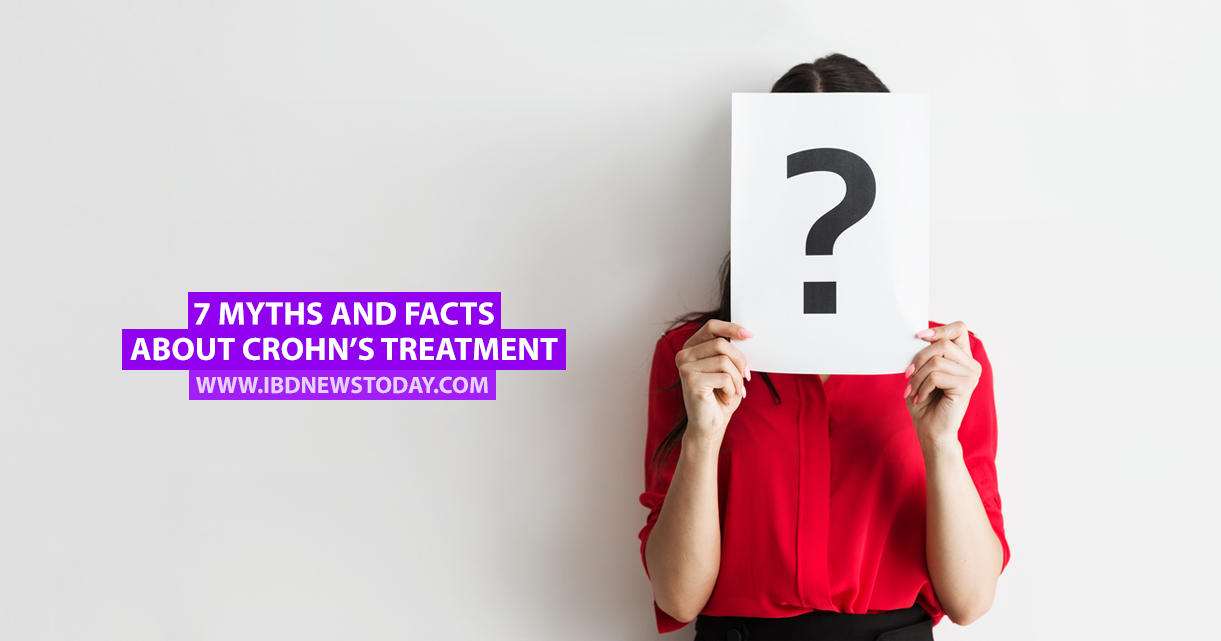When it comes to inflammatory bowel diseases, it seems that there is a lot of misinformation out there. Thanks to Google and social media, it’s easy to get sucked into a deep hole full of articles and blog posts that may report inaccurate facts or are just plain wrong.
With this in mind, we’ve created a list of seven myths and facts about Crohn’s disease:
1. You can cure Crohn’s.
Myth. There is no known cure for Crohn’s disease. While the symptoms can be managed and the disease can go into remission, if you have Crohn’s, you have it for life.
2. If you have Crohn’s you’ll probably need surgery.
Fact. Sadly, most Crohn’s patients will need surgery at some point when the medications they take no longer relieve their symptoms. Around two-thirds of people with Crohn’s will need to have a part of their bowel removed if they develop a fissure, intestinal obstruction or fistula.
3. You can stop your medication if your Crohn’s is in remission.
Myth. The medication is what is putting — and more importantly, keeping — you in remission. If you stop taking your meds, you’ll be sick again. If you are having any problems with your medication, you’ll need to speak to your doctor about adjusting your dose or finding an alternative.
MORE: These four lifestyle changes will help you manage your Crohn’s disease
4. Treating Crohn’s early is important.
Fact. The sooner you are diagnosed with Crohn’s and can begin treatment, the better. Some medications, such as biologic medications, work best when they are started early.
5. Long-term steroid use is safe.
Myth. Steroids are generally used to treat flares and once the flare has passed, you shop stop using steroids and return to your usual medication to keep you in remission.
6. What I eat can affect my Crohn’s.
Fact. While there isn’t a one-size-fits-all solution when it comes to diet and Crohn’s disease, there are foods that are known triggers. Keeping a food diary is a good way to find out which foods trigger your flares so you can eliminate them from your diet.
MORE: Do you know about the role of diet in inflammatory bowel diseases?
7. If I get pregnant I have to stop my meds.
Myth. You’ll need to speak to your doctor and obstetrician about the medications you’re taking, since some may not be safe in the first two trimesters. It’s important that you remain as well as possible during your pregnancy to prevent any complications, so this means taking medication to keep flares at bay.
MORE: Find out about Clint Darden’s battle with ulcerative colitis
IBD News Today is strictly a news and information website about the disease. It does not provide medical advice, diagnosis or treatment. This content is not intended to be a substitute for professional medical advice, diagnosis, or treatment. Always seek the advice of your physician or another qualified health provider with any questions you may have regarding a medical condition. Never disregard professional medical advice or delay in seeking it because of something you have read on this website.

